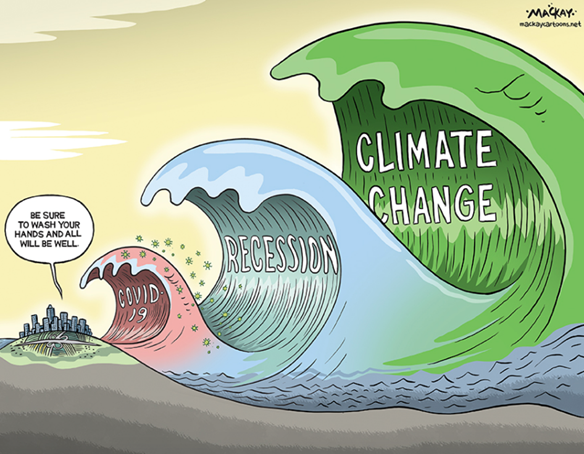Blog
How Can We Make Multi-Stakeholder Partnerships Faster?
By Susanne Salz (GDL member) and Darian Stibbe (Executive Director tpi)
Since early 2020, the COVID-19 pandemic has ravaged the planet. COVID-19 laid bare the great inequalities within and between higher and lower-income countries. As well as the terrible loss of life, people have lost livelihoods, opportunities, and access to education or healthcare. Progress on the Sustainable Development Goals (SDGs) that was being made, arguably already too slowly, has been reversing.
While the development of a vaccine is set to reduce the threat, the tremendous damage to economies may continue to impact people’s well-being for years to come. Worse still, lurking behind, there is another great threat that will put the impact of COVID-19 completely in the shade: climate breakdown. While the rapid development and dissemination of a vaccine is impressive, it is trivial in comparison to the global actions that will need to be taken if we are to avoid the worst of climate perils.
However, this is not to say that we should be hopeless or helpless. In fact, the COVID crisis has demonstrated a number of phenomena that give cause for optimism in at least three ways.
# Firstly, when faced with a severe, urgent and common threat, all societal sectors –business, government, civil society organisations and others – stepped up, and all had something to contribute.
# Secondly, we saw the power of collaboration in action at every level. In communities, local restaurants worked with civil society groups to deliver food to vulnerable people. At the global level, an unprecedented international public-private collaboration resulted in the warp-speed development and regulation of vaccines, and distribution through the international COVAX partnership.
# Thirdly, we have seen that if the incentive is strong enough, we can change the way we live and work – in the case of COVID, almost literally overnight.
Imagine if we could harness even a fraction of that all-of-society collaborative effort, on an ongoing, sustained basis, to effect the transformations required to avert the looming climate crises.
An African proverb says, “If you want to go fast, go alone – if you want to go far, go together”. The reality is that, in the case of climate breakdown, we do not have this choice. We must go fast and we must go together.
Recently, the slogan and the idea to “build back better” after this crisis have been popular. It is worth applying this idea, which Winston Churchill famously phrased with the words “never let a good crisis go to waste”. Yet the term and idea to build back better refers to the past and then aims to improve incrementally upon that flawed reality.
What would be even more worthwhile is to “build forwards” – which implies considering the world we want to live in in future and then building the foundations for that future world in the present. By switching from building back better to building forwards, our key point of reference changes from the past to the future.
It has been said all too often that we need to diverge from business as usual. Protests and movements such as Black Lives Matter and Fridays for Future are demanding radical change. To achieve such a vision, it is essential that the future rather than the past becomes our guiding star.
As SDG 17 on Partnerships for the Goals emphasises, all actors across the globe must unite and take actions in the transformation needed to create the future we want. The difficulty is that partnering across sectors comes with significant challenges. It is hard to align the interests of diverse stakeholders towards a shared vision that can deliver value for all.
Partnerships must deal with intrinsic tensions across societal sectors. They must cope with the different values, cultures, interests, funding arrangements and vocabularies of all the partners. They need commitment, leadership and trust across partners. Partnerships currently take too long to develop and deliver impact compared with the urgency of the climate crisis and global sustainable development more generally.
It is important that we learn to become much faster in initiating, implementing and iterating partnerships to deliver results much more quickly.
About the authors:
Susanne Salz is a project coordinator with vast expertise in the areas of sustainable development and global governance and is continuously working on the creation of multi-stakeholder-partnerships to implement the 2030 Agenda. Susanne is also a part of the GIZ initiative Partnerships2030.
Darian Stibbe is the Executive Director of The Partnering Initiative (tpi).
Published on June 2, 2021.
Image credit: Graeme MacKay Cartoons. The original graphic can be found here.
